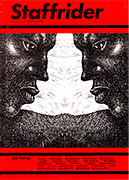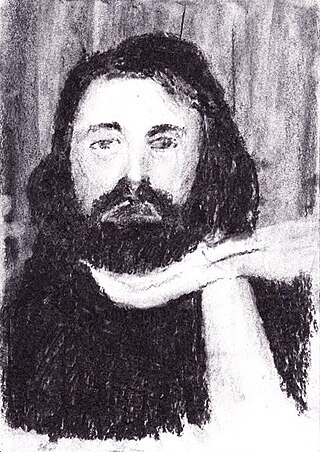
Neil Aggett was a doctor and trade union organiser who was killed, while in detention, by the Security Branch of the Apartheid South African Police Service after being held for 70 days without trial.
Ivan Vladislavić is a South African author, editor and professor. Vladislavić's style has been described as postmodern, innovative, humorous and unpredictable. Despite receiving critical acclaim, his work is not well known outside his home country.

DRUM is a South African online family magazine mainly aimed at black readers, containing market news, entertainment and feature articles. It has two sister magazines: Huisgenoot and YOU.
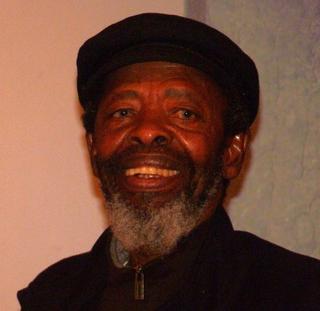
Keorapetse William Kgositsile, also known by his pen name Bra Willie, was a South African Tswana poet, journalist and political activist. An influential member of the African National Congress in the 1960s and 1970s, he was inaugurated as South Africa's National Poet Laureate in 2006. Kgositsile lived in exile in the United States from 1962 until 1975, the peak of his literary career. He made an extensive study of African-American literature and culture, becoming particularly interested in jazz. During the 1970s he was a central figure among African-American poets, encouraging interest in Africa as well as the practice of poetry as a performance art; he was well known for his readings in New York City jazz clubs. Kgositsile was one of the first to bridge the gap between African poetry and African-American poetry in the United States.
Rose Zwi was a Mexican-born South African–Australian writer and anti-apartheid activist best known for her work about the immigrants in South Africa.

Christopher van Wyk was a South African children’s book author, novelist and poet. Van Wyk is famous for his poem "In Detention" on the suspicious deaths that befell South African political prisoners during Apartheid. He was also an editor at Ravan Press.
Daniel Canodoise "Can" Themba was a South African short-story writer.
Karabo Moses Motsisi (1932–1977), better known as Casey Motsisi or Casey "Kid" Motsisi, was a South African short story writer and journalist.
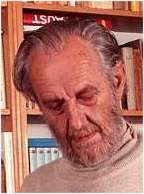
Peter Rudolf Gisela Horn was a Czech-born South African poet. He made his mark especially with his anti-Apartheid poetry. At the end of World War II he had to flee from his home and settled with his parents first in Bavaria and later in Freiburg im Breisgau, where he completed high school in 1954. He then emigrated with his parents to South Africa.
Bob Gosani (1934–1972) was a South African photographer.
Miriam Tlali was a South African novelist. She was the first black woman in South Africa to publish an English-language novel, Between Two Worlds, in 1975. She was also one of the first to write about Soweto. Most of her writing was originally banned by the South African apartheid regime. She was married to Stephan Lehutso,they had two children. A Daughter Moleboheng Phooko-Lehutso and a son Moshe Maele Lehutso, 2 Grandchildren Matsididi Karabo Lehutso son of Moshe and Palesa Miriam Lehutso, daughter of Moshe, 3 Great Grandchildren Tshire Lehutso daughter of Matsididi, Lesego Lehutso son of Matsididi,and Masolinyana Carmen Moleboheng Lehutso daughter of Palesa.
Peter Ralph Randall was an anti-apartheid publisher in South Africa, and was banned by the former South African government between 1977 and 1981. He later became a professor in charge of teacher education at the University of the Witwatersrand, Johannesburg.
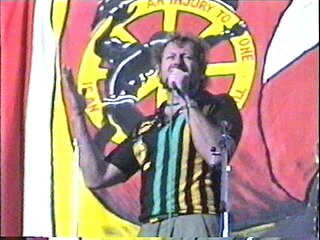
Keith Gottschalk, is a South African poet, known for his anti-apartheid poetry. He was born on the 14 March 1946 in Cape Town, where he still lives. He studied at the University of Cape Town 1964–70, where he was a tutor and junior lecturer to 1983.
Tyrone Appollis is a South African artist and poet.
Kelwyn Sole is a South African poet and academic.
"The Suit" is a short story by the South African writer Can Themba. It was first published in 1963 in the inaugural issue of The Classic, a South African literary journal founded by Nat Nakasa and Nadine Gordimer. On publication, the story was banned by the apartheid regime. "The Suit" was adapted for the stage by Mothobi Mutloatse and Barney Simon in 1994, and has been adapted into a short film of the same name, written and directed by Jarryd Coetsee and premiered in 2016.
"Meadowlands" was an anti-apartheid song composed in 1956 by Strike Vilakazi. It was written in reaction to the forced relocation of black South Africans from Sophiatown, to the new township of Meadowlands. The song was popularised by a number of musicians, including Dorothy Masuka and Miriam Makeba, and became an anthem of the movement against apartheid.
Ravan Press, established in 1972 by Peter Ralph Randall, Danie van Zyl, and Beyers Naudé, was a South African anti-apartheid publishing house.
Mmakgabo Mmapula Mmangankato Helen Sebidi is a South African artist born in Marapyane (Skilpadfontein) near Hamanskraal, Pretoria who lives and works in Johannesburg. Sebidi's work has been represented in private and public collections, including at the National Museum of Women in the Arts, Washington and New York the Smithsonian National Museum of African Art, New York, and the World Bank. Her work has been recognised internationally and locally. In 1989 she won the Standard Bank Young Artist award, becoming the first black woman to win the award. In 2004, President Thabo Mbeki awarded her the Order of Ikhamanga in Silver – which is the highest honor given to those considered a "national treasure". In 2011, she was awarded the Arts and Culture Trust (ACT) Lifetime Achievement Award for Visual Art, whilst in 2015 she received the Mbokodo Award. In September 2018, Sebidi was honoured with one of the first solo presentations at the Norval Foundation in Cape Town – a retrospective entitled Batlhaping Ba Re.
Bongiwe or Bongi Dhlomo-Mautloa, is a Zulu South African printmaker, arts administrator and activist.
